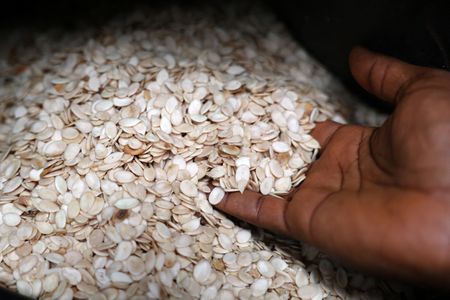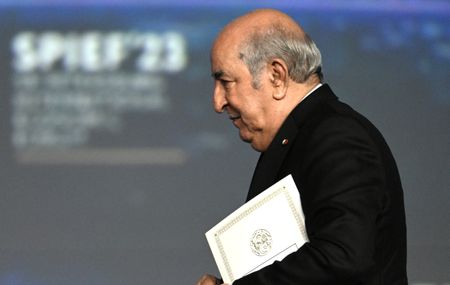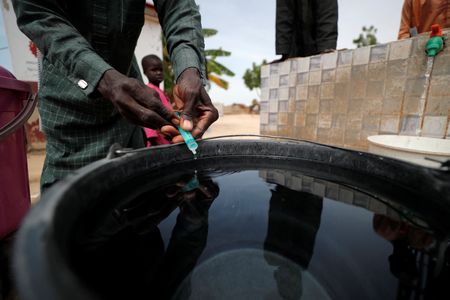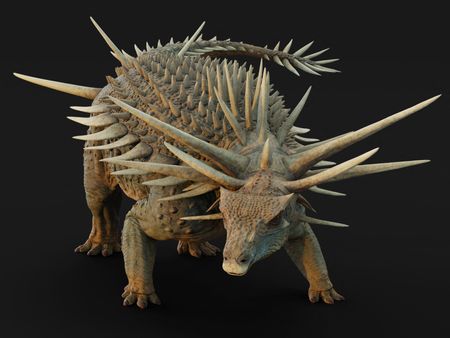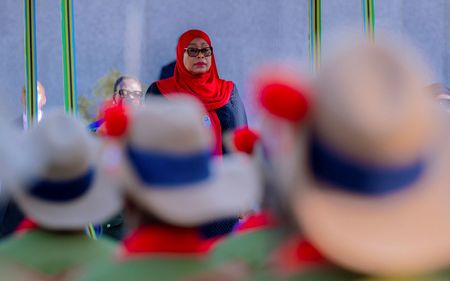By Ben Ezeamalu and Vining Ogu
LAGOS (Reuters) -A staple of Nigerian cuisine, egusi soup, could one day be consumed on the Moon or on Mars after melon seeds from which the thick, fragrant dish is made orbited the Earth for seven days and returned to be studied by space scientists.
The egusi seeds were transported to the International Space Station by a capsule that launched from NASA’s Kennedy Space Center in Florida this month, as part of a project to study how they react to conditions in space.
“The goal is that in the next couple of decades, when people are living on the Moon, on Mars, and they’re looking at growing food … foods that are native to Africa would be part of that,” said Temidayo Oniosun, who selected the seeds for the mission.
“So even in 50 years’ time, if Africans are living on the Moon, we want them to be growing and planting egusi,” said the Nigerian entrepreneur, founder of intelligence company Space in Africa.
Egusi seeds, an excellent source of protein, were packed into specialised test tubes on the Crew-11 space capsule launched on August 1 along with some heritage seeds from Costa Rica, Guatemala, Armenia and Pakistan.
University of Florida scientist Wagner Vendrame, one of the researchers involved in the project, said that future astronauts would need a better variety and quality of foods than the ultra-processed freeze-dried meals that are currently space staples.
“Being able to grow their own, let’s say, lettuce, tomatoes, or melons in space, is not only important for nutrition, for their health, but also it has psychological effects when you eat a melon that is fresh versus something that is processed,” he said.
Oniosun, who picked the space-travelling egusi seeds from markets in the southwestern Nigerian state of Oyo, said the choice was motivated not only by the seeds’ nutritional properties but also by culture and symbolism.
“Everybody in Nigeria eats egusi, and even other people in some West African countries and Africans in the diaspora, so this (mission) is something they could identify with,” he said. “Egusi is the seed that tells our story.”
The seeds that were in orbit are now being distributed to researchers. Vendrame said they would be propagated in vitro and studied for genetic changes triggered by their time in orbit.
“By looking at the changes in the plants and the seeds themselves, we can tell – are those plants still the same? Would they still provide the same level of nutrition to astronauts?”
(Writing by Ben Ezeamalu and Estelle Shirbon; editing by Mark Heinrich and Ros Russell)

